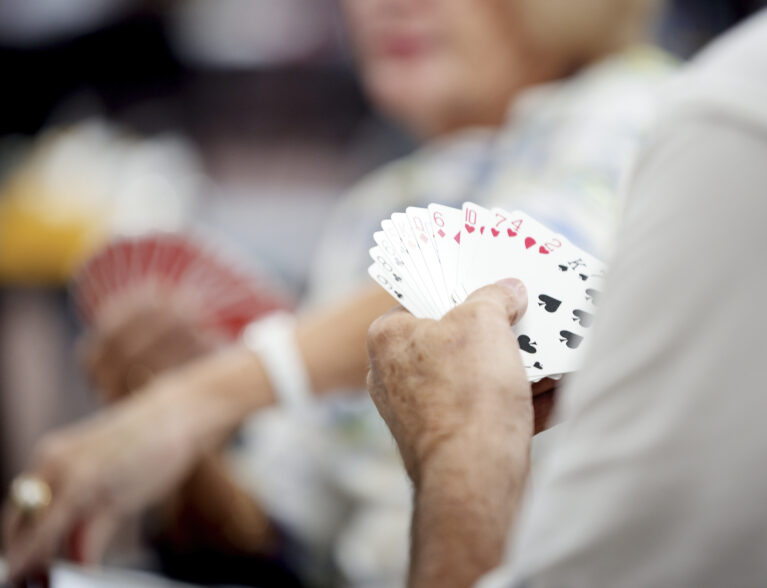
The Vero Beach Bridge Club has once again placed among the top five brick-and-mortar bridge clubs in North America by the latest table count figures announced by the American Contract Bridge League (ACBL).
According to a recent issue of The Bulletin, the ACBL’s monthly magazine, the Vero Beach Bridge Center played 5,925.5 tables during calendar year 2024, finishing just ahead of Honors, the New York City club which used to be tops in the country before Covid.
Four out of the top five clubs in the country are located in Florida, with The Villages, the Temple Sinai Duplicate Bridge Center in Delray Beach and the Naples Bridge Center on Florida’s West Coast occupying the top three spots in the rankings.
The No. 4 club, the Duncan Bridge Center in Palm Desert, Calif., in the Palm Springs area, reported 6,860 tables played.
This was the first time since the Covid pandemic halted face-to-face bridge that the ACBL was able to separate out table counts for face-to-face clubs and online bridge clubs or consortiums, which got a huge boost during Covid, but were also plagued by various cheating scandals.
The Vero Beach Bridge Center placed third in table count among “virtual” or online clubs with 26,391 tables played daily at various times throughout the day and evening, but that ranking was achieved through participation in an alliance of clubs run out of South Carolina, meaning most players were not local Vero Beach residents.
Tops among online clubs was a consortium based in Knoxville, Tenn., that also draws players from all over the country and the world, and second was the virtual club of the Duncan Bridge Center run out of Palm Springs.
In the last few years before Covid halted face-to-face bridge in March 2021, the Vero Beach Bridge Club had consistently ranked among the top 10 clubs in the country, rising as high as No. 4.
Table counts were about double what they are now post-Covid, but all clubs around the country have seen declines in attendance of similar proportions as people drifted to online play or stopped playing bridge altogether.
Many bridge players died in the interim, not necessarily of Covid, as the average age of competitive bridge players continues to increase and fewer younger players are joining the game.
There is no doubt that Vero Beach continues to be a bridge-playing community par excellence as many people retire to our area – or come here half the year as snowbirds – specifically for the quality of the competitive bridge.
Apart from the “open” daily games at the Vero Beach Bridge Center, which also offers continuous classes for beginners as well as intermediate players seeking to improve their skills, competitive bridge sanctioned by the ACBL and run by accredited directors also flourishes at about a dozen gated community or country club games, some of which draw even larger table counts than the Vero Beach Bridge Center on certain days of the week.
The Vero Beach Bridge Center has for the moment stopped trying to sell all or half of its building, a converted bowling alley on 14th Avenue on the southern edges of Vero Beach’s downtown area, across the street from the Crestlawn Cemetery. With declining attendance, the building had become too big for its needs.
In his latest message to the club’s members, Vero Beach Bridge Club Board President Denis Conlon, re-elected for a second one-year term, said the club was doing so well financially that it recently undertook a beautification project involving the outside walls, the lobby area and the kitchen, where two new refrigerators were installed.
Conlon said attendance was up 10 percent over last year, and membership was up slightly to just over 700.
“The club’s financial position is strong,” Conlon said. The club had a net income last year of $151,000, which Conlon said included tax-deductible donations from generous members.
Noting that the Vero Beach club was the fourth most active in Florida, Conlon added: “While it would be nice to be No. 1, our goal is not to be the biggest – we are simply trying to be the best.”



